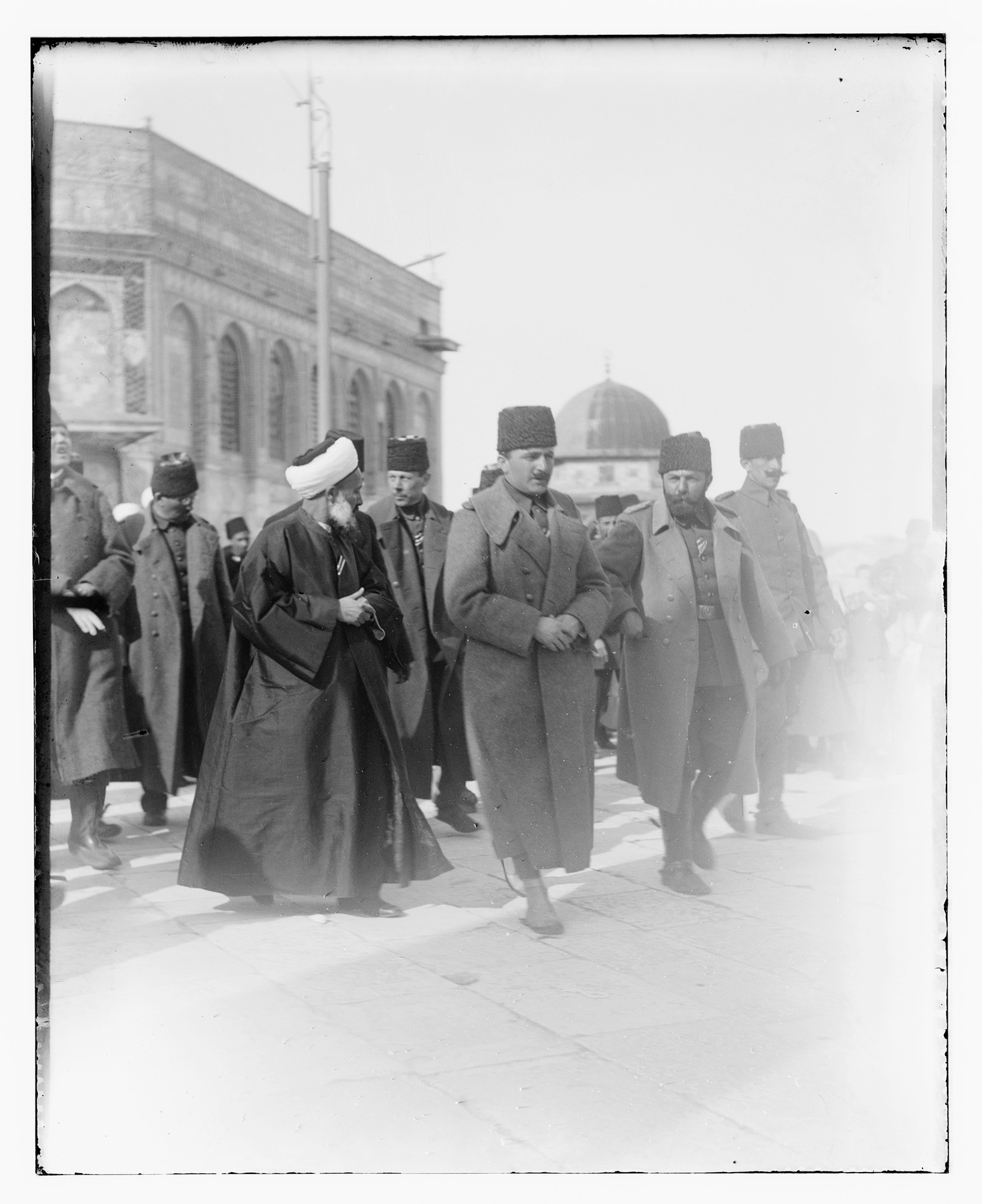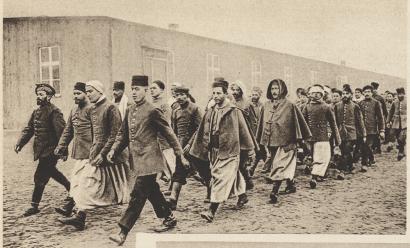WWI and Jihad ›
Jihad, Germany and the Ottoman Empire
The Kaiser placed Max von Oppenheim in charge of pro-German-Ottoman propaganda. von Oppenheim was a German who had lived in Islamic countries as a member of the German Foreign Service. During the war, he headed the German Information Service of the East. This department created propaganda promoting Islamic loyalty. Central to the campaign was the Islamic concept of jihad.
“If several enemies unite against Islam, if the countries of Islam are sacked, if the Moslem populations are massacred or made captive; and if in this case the Padishah (sultan) in conformity with the sacred words of the Koran proclaims the Holy War, is participation in this war a duty of all Muslims? Answer: Yes.”
—Translation to English, from fatwas and sultan’s declaration on Nov. 14, 1914
The German Information Service of the East worked with Ottoman leadership to influence a declaration of jihad. As a result, Mehmed V, Sultan of the Ottoman Empire, declared holy war as caliph. His statement called all Muslims to rally to the support of the Ottomans.
“Russia, England, and France never for a moment ceased harboring ill-will against our Caliphate, to which millions of Moslems, suffering under the tyranny of foreign dominations, are religiously and whole-heartedly devoted. ... Throw yourselves against the enemy as lions, bearing in mind that the very existence of our empire, and of 300 million Moslems whom I have summoned by sacred Fetva (fatwa) to a supreme struggle, depend on your victory.”
—From declaration of Caliph Mehmed V, Nov. 14, 1914
On November 11, 1914, nine days after Russia declared war on the Ottoman Empire, the Grand Mufti of Constantinople Sheikh ul-Islam Khairi signed five fatwas.
A fatwa is a ruling on a point of Islamic law, written by an Islamic legal scholar called a mufti.
The fatwas proclaimed:
- The pursuit of jihad against the allied powers was a holy obligation of every individual Muslim, including Muslims living under the rule of any one of those powers.
- Any Muslim failing in this duty will incur the wrath of God.
- Any Muslim who engages in combat against the soldiers of Islam (any Muslims fighting in the British, French, and Russian armies) would merit the fires of hell.

Print, Photographic. 1916. American Colony (Jerusalem) Photo Department. LC-M31-60144-x [P&P]. G. Eric and Edith Matson Photograph Collection. Library of Congress, Prints and Photographs Division.
For Germany, jihad was a useful concept to weaken rival empires. The German alliance with the Ottoman Empire gave them access to a large population of potential Muslim soldiers. Any actions against the German-Ottoman alliance or for the allied countries would be actions against Islam – worthy of jihad.
In Arabic, jihad means “striving.” Jihad can be understood as an internal struggle to honor divine expectations (greater jihad) or as external, violent warfare against non-Muslims (lesser jihad). Jihad also can transcend these definitions to mean struggle itself – an all-out mustering of effort in the face of a great challenge.
For the Young Turks leading the Ottoman Empire, jihad was to their direct advantage. Fatwas and propaganda publications claimed this jihad was a greater jihad, a divine struggle. This put the Ottoman Empire in a place of influence and power over the global Islamic community. This meant more support for the country’s military and political goals.
